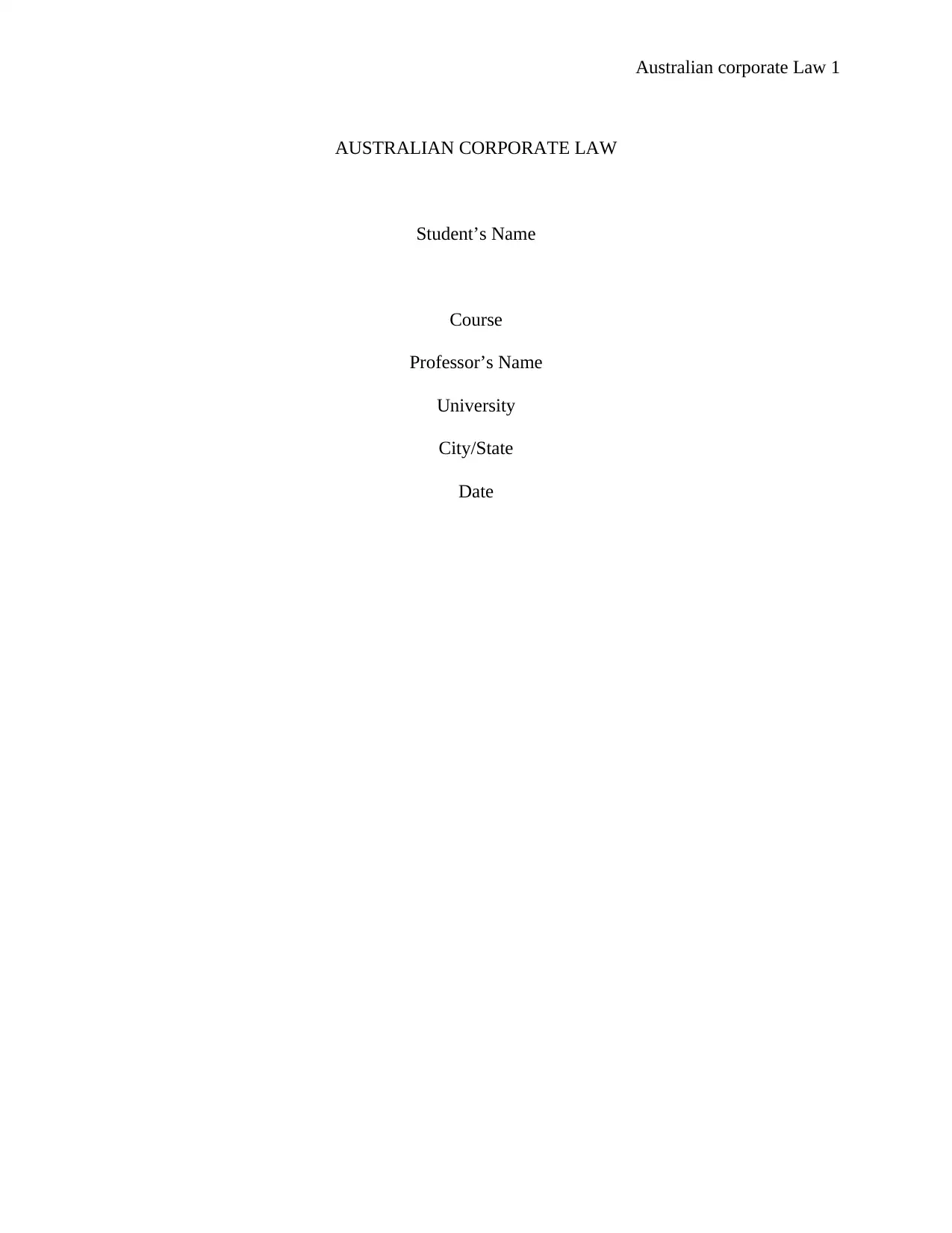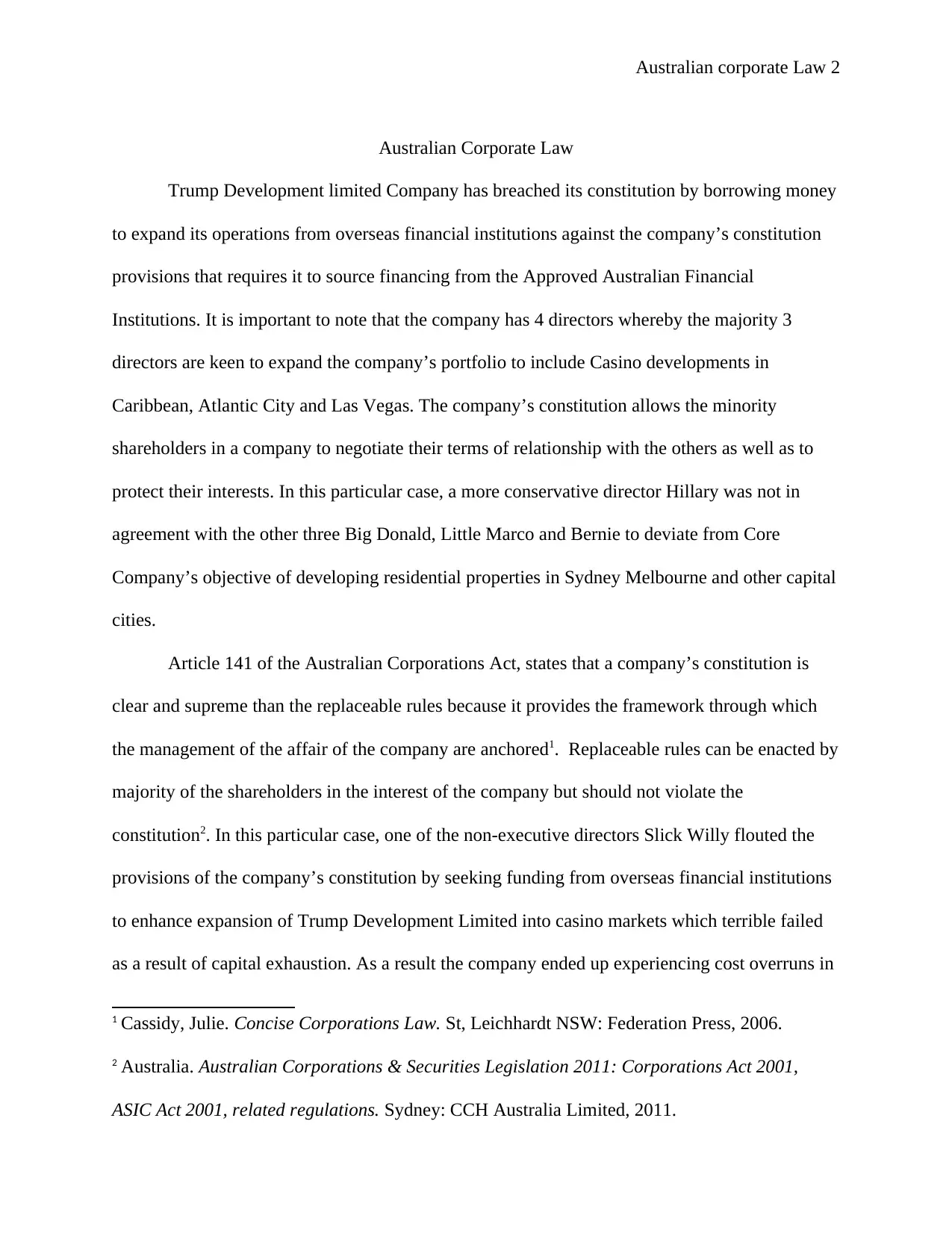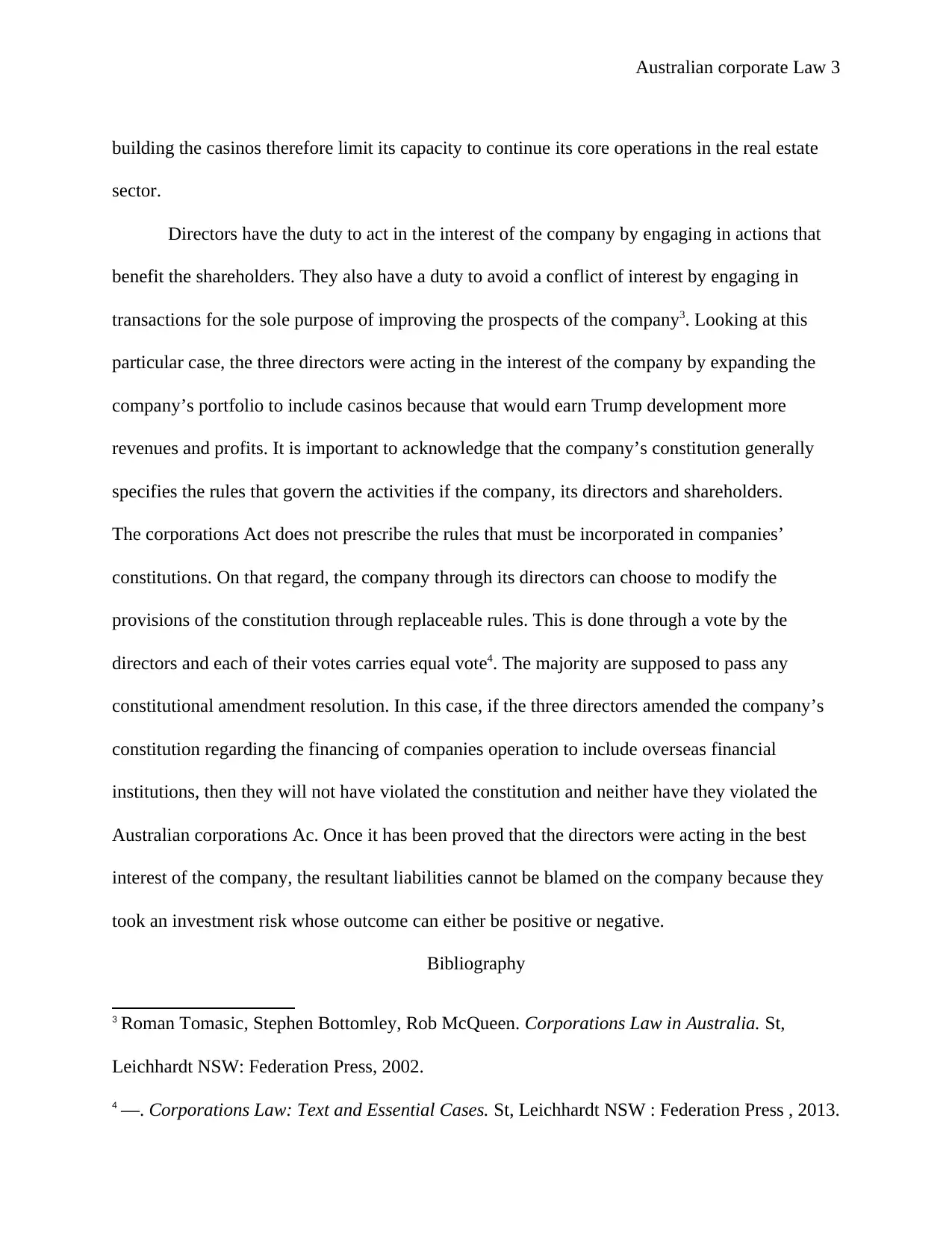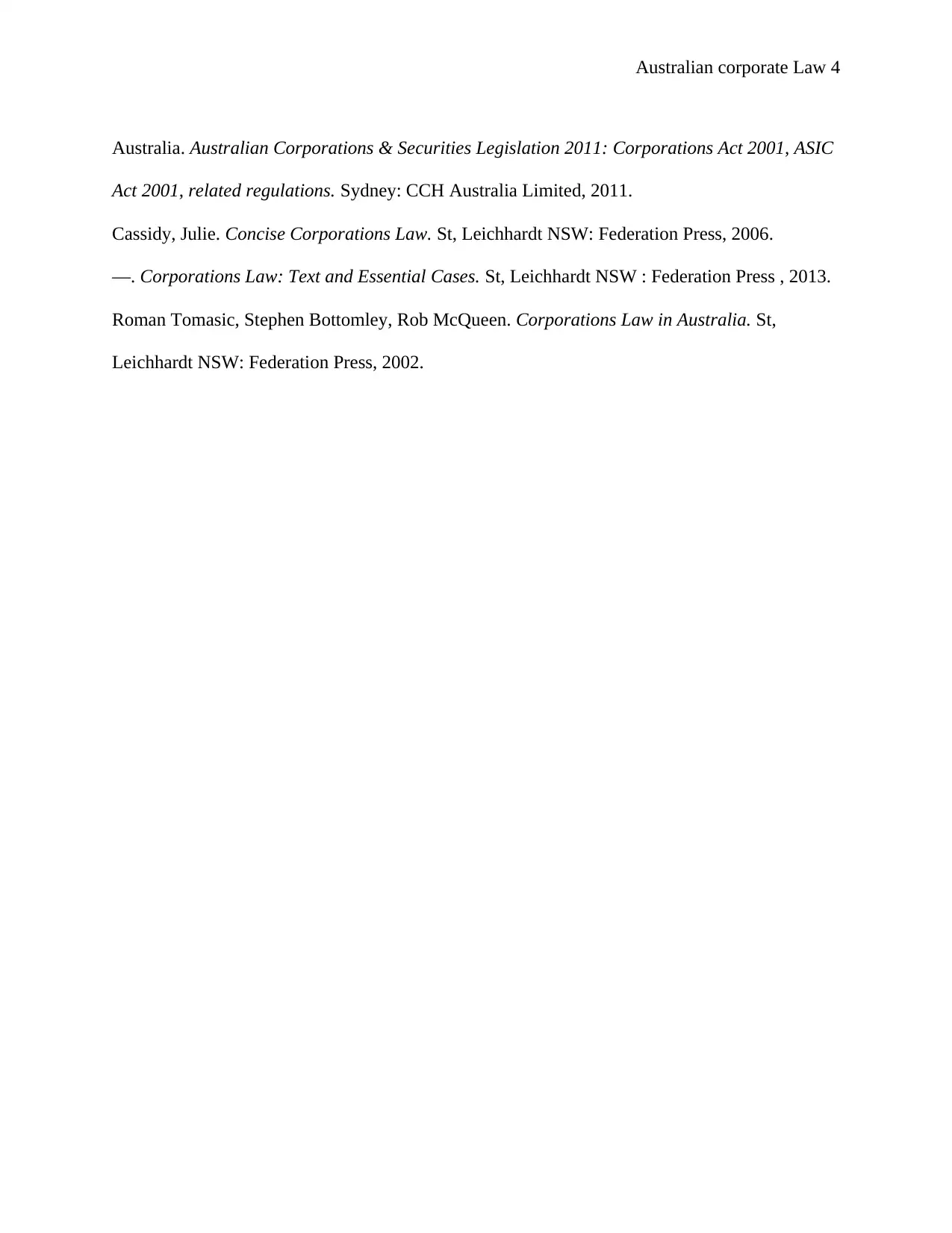Australian Corporate Law Case Study: Trump Development Limited
VerifiedAdded on 2019/11/29
|4
|797
|104
Case Study
AI Summary
This case study analyzes a breach of the constitution by Trump Development Limited, focusing on the actions of its directors. The company, initially focused on real estate, sought to expand into casino developments, financed by overseas institutions, against its constitution's provisions. The case explores the conflict between the majority directors' expansion plans and a minority shareholder's conservative stance. It delves into the interpretation of Article 141 of the Australian Corporations Act, differentiating between a company's constitution and replaceable rules. The analysis considers directors' duties, including acting in the company's best interest and avoiding conflicts of interest. The study examines the implications of the directors amending the company's constitution and the resulting liabilities. It uses legal references to support its arguments.
1 out of 4











![[object Object]](/_next/static/media/star-bottom.7253800d.svg)